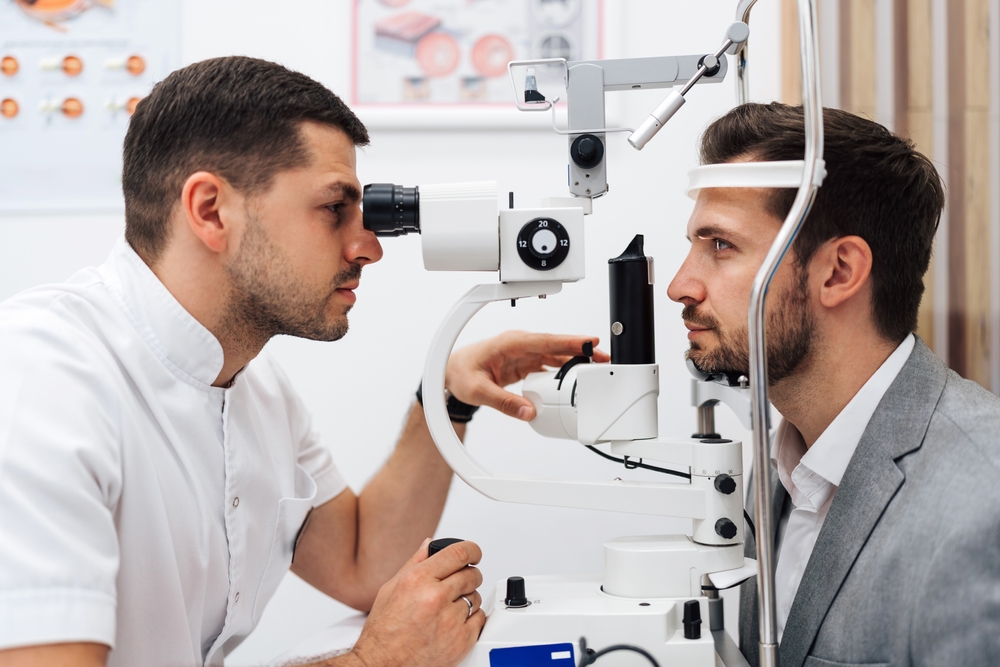
August 01, 2024
Glaucoma is a complex eye condition that affects the optic nerve, which is responsible for transmitting visual information from the eye to the brain. This progressive disease can lead to permanent vision loss if left untreated. Understanding the causes, types, and risk factors associated with glaucoma is the first step in determining whether it can be prevented.
What is Glaucoma?
Glaucoma is primarily caused by an increase in intraocular pressure (IOP), which is the pressure within the optic nerve. This elevated pressure can damage the optic nerve, leading to vision impairment. There are several types of glaucoma, including open-angle glaucoma, the most common form, and angle-closure glaucoma, which is less common but can develop more rapidly. Risk factors for glaucoma include:
Age (the risk increases with age)
Family history of the condition
Certain medical conditions, such as diabetes and high blood pressure
Ethnicity (certain populations, such as African Americans, are at a higher risk)
Eye injuries or trauma
Long-term use of certain medications, such as steroids
Understanding these risk factors can help you take proactive steps to manage your eye health and potentially prevent the development of glaucoma.
A Closer Look at the Progression of the Disease
Glaucoma is a progressive condition, meaning it worsens over time if left untreated. The disease typically develops slowly, with gradual vision loss that often goes unnoticed in the early stages. In open-angle glaucoma, the drainage system in the eye becomes blocked, causing a gradual buildup of fluid and increased IOP. In angle-closure glaucoma, the angle between the iris and the cornea narrows, leading to a sudden increase in IOP and potentially rapid vision loss. As the optic nerve becomes damaged, individuals with glaucoma may experience the following symptoms:
Peripheral (side) vision loss
Difficulty adjusting to changes in lighting
Increased sensitivity to glare
Difficulty with night vision
Tunnel vision, which can progress to complete blindness if left untreated
Understanding the progression of glaucoma is crucial in determining whether the condition can be prevented or managed effectively.
Can Glaucoma Be Prevented?
Glaucoma cannot be completely prevented, as there are certain risk factors that are beyond your control, such as age and genetic predisposition. However, there are steps you can take to reduce your risk of developing the condition or slow its progression.
1. Maintain a Healthy Lifestyle: Adopting a healthy lifestyle can play a significant role in reducing your risk of glaucoma. This includes:
Maintaining a healthy weight
Exercising regularly to improve blood flow and reduce IOP
Eating a balanced diet rich in antioxidants and nutrients that support eye health
Avoiding smoking and excessive alcohol consumption
2. Manage Existing Medical Conditions: If you have underlying health conditions, such as diabetes or high blood pressure, it's crucial to work closely with your healthcare provider to manage them effectively. Uncontrolled medical conditions can increase your risk of developing glaucoma.
3. Protect Your Eyes: Safeguarding your eyes from injuries and trauma can help prevent the development of glaucoma. Wear protective eyewear when engaging in activities that may put your eyes at risk, such as sports or home improvement projects.
4. Consider Dietary Supplements: Some studies suggest that certain dietary supplements, such as omega-3 fatty acids and antioxidants, may help support eye health and potentially reduce the risk of glaucoma. However, it's important to consult with your eye care professional before starting any supplement regimen.
Early Detection and Management of Glaucoma
Regular eye exams are essential for the early detection and management of glaucoma. During these examinations, your optometrist will measure your IOP, assess the health of your optic nerve, and check for any signs of vision loss. Early detection is crucial, as it allows for timely treatment and the implementation of strategies to slow the progression of the disease.
Even if you don't have any noticeable symptoms, it's recommended that you undergo comprehensive eye exams annually. By prioritizing routine eye exams, you can take an active role in monitoring your eye health and potentially prevent or manage the development of glaucoma.
Taking Control of Your Eye Health and Preventing Glaucoma
Glaucoma is a complex and potentially vision-threatening condition, but with the right knowledge and proactive approach, you can take steps to reduce your risk and protect your eyesight. By understanding the causes, risk factors, and symptoms of glaucoma, and by implementing lifestyle changes and prioritizing routine eye exams, you can take control of your eye health and work towards preventing the development of this condition.
If you have concerns about your risk for developing glaucoma or to schedule an eye exam, contact Vision Center South. We are dedicated to providing personalized care and helping you maintain optimal vision. Visit our office in Enterprise, Alabama, or call (334) 347-6599 to book an appointment today.














